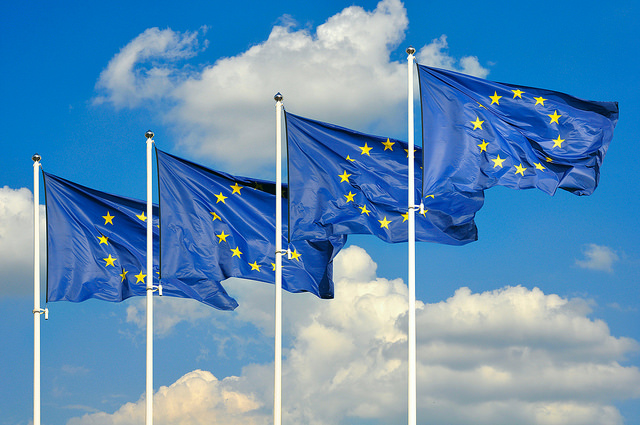The 5th EU-Africa Summit – Europe’s Perspective

The African-EU Summit is a McMUN committee that strives to bring Africa and Europe closer together by strengthening economic cooperation, promoting sustainable development, and fostering values of democracy, security, and solidarity. The European Union (EU) and African Union (AU) member states operate at two levels within their respective union and union counterpart. The EU is determined to overcome the traditional donor-recipient relationship, to develop a shared long-term vision for EU-Africa relations in a globalized world. The committee challenges delegates to pave a new path for partnership, by addressing current and historic economic and political circumstances that continue to define their relationship.
On Friday, January 22nd, the African Summit and the EU had a successful morning and passed four resolutions. The first resolution, called “Responsible Africa, Responsible Europe”, was sponsored by Plim Van Bellokom, William Hague, Angela Merkel, and Pedro Coehlo. This resolution endorsed the promotion and expanded use of Erasmus Mundus (an organization that provided and fellowship at all academic levels) within Africa. It also recommended continued investment in the African Union as a means of reparation, and micro-loans to build infrastructure for water sanitation.
The second resolution, called “Development Projects for Prosperity”, was sponsored by Hollande, Croatia, Cochlo, Ashton, Bohuslav Sobotka, and Plevniev. This resolution addressed and recognized the mistreatment of African countries during the colonization period. The EU intended to create a shared history by rewriting textbooks and including primary reports of the atrocities committed during the colonization period. Furthermore, it suggested that the EU focuses on development projects, to increase African autonomy and strength, by investing in and strengthening educational institutions.
The third resolution, called “Actions, not Words”, was sponsored by Estonia, Finland, Latvia, Netherlands, and the UK. It suggested that the EU establish a tech-sharing system (written in the major African dialects) to offer information on infrastructure development, which will be accessible to AU countries that request assistance in this regard. It also created an institution called the European Reparations Board (ERB), in which African countries can submit claims and expand on setbacks from colonial times that deter current growth.
The fourth resolution, called “Old Wounds”, discussed colonial reparations in Africa and was sponsored by Greece, Hungary, Italy, Lithuania, Luxembourg, and Malta. Through the draft resolution, the EU promoted preferential immigration by former colonizers to their colonial possessions. It also issued favorable trade policies to benefit African nations, and ensured that trade imbalances were not exacerbated. This would be achieved by providing technical skills through exchange summits, and helping African nations improve their export potential. Finally, the EU offered greater aid in healthcare in the African continent, through doctors and medical personnel.
The issue of immigration was discussed in depth during the committee session. The VP of the European Union noted that there existed a significant number of illegal immigrants from Africa to Europe, but many of them get lost in Mediterranean Waters. France asserted that security operations in Africa must be strengthened to discourage the dangerous journey across the Mediterranean. Furthermore, security should be increased in the Mediterranean so that less shipwrecks occur. Luxembourg however, asserted that migration and remittance are not just social and political problems but human rights – refugees and asylum seekers have a right to move and choose the country of their choice. Greece and Malta asserted that Mediterranean countries were receiving an unsustainable amount of immigration, and needed the EU’s help and reformulation of asylum laws to diffuse immigration across the continent. Russia contended that immigrants must be moved to a country with a need for low-skilled labour, in order to act as productive members of society.
Overall, the debates which took place and resolutions which were passed in the morning endeavor to improve Africa’s future, and urge European nations to provide technical, financial, or additional aid within their means. The EU hopes to improve and contribute to African educational institutions, as well as invest in assets, such as technological sectors, in order to mitigate past wrongs and provide developmental aid.
